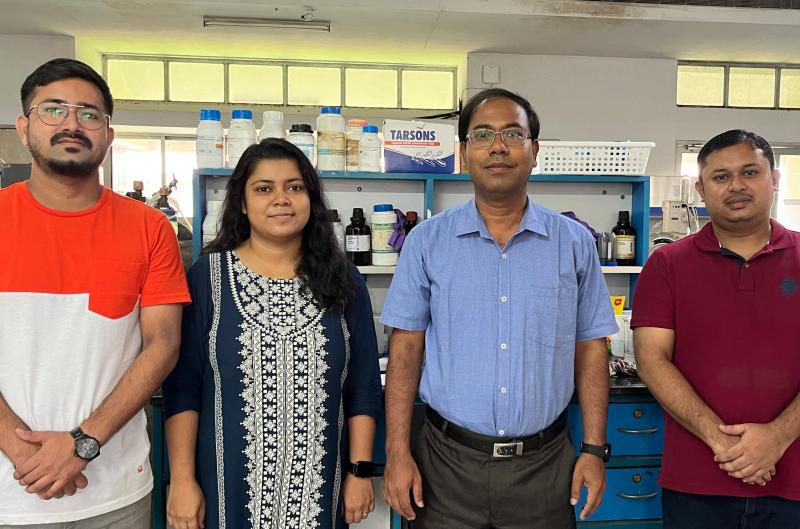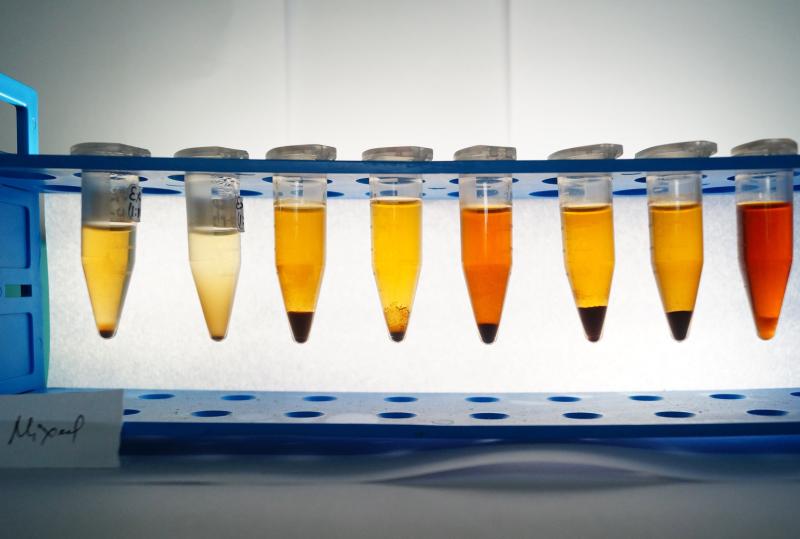Think of the discarded tea leaves, buds and tender stems, all of which is generally thrown away at the many tea factories around the world.
However, with a bit of processing, tea waste can potentially become an economic opportunity, according to researchers in India, helping to pave the way for a sustainable and efficient tea industry.
In India, tea waste means tea sweepings, tea fluff, tea fiber, tea stalks or any article purporting to be tea and that does not conform to the specification of tea laid down under the Government of India Prevention of Food Adulteration Act, 1954.
Unlocking the Hidden Potential of Tea Waste
Not very far from the lush tea plantations of Assam, where the aroma of freshly brewed tea wafts through the air, a team of researchers at the Indian Institute of Technology Guwahati (IIT Guwahati) are unlocking the hidden potential of tea waste.
Led by Professor Mihir Kumar Purkait of the Department of Chemical Engineering at the Indian Institute of Technology Guwahati, the team of researchers have embarked on a groundbreaking mission regarding tea waste, funded by the Abdul Kalam Technology Innovation National Fellowships of Indian Academy of Engineering. Their goal is to identify a plethora of innovative, value-added product ideas that incorporate tea waste, with the hopes to change the face of the global tea industry.
This research has been carried out by Somnath Chanda, Prangan Duarah and Banhisikha Debnath as a part of their Ph.D. thesis work at the Centre for the Environment at the Indian Institute of Technology Guwahati.

The research team’s effort is in line with the waste to wealth mission (W2W) of the Government of India: Leverage a key resource to promote a more sustainable and diversified economy in North East India.
“Tea is one of the major resources of Assam,” said Prangan Duarah, a member of the research team. “Not just [for] drinking tea – a lot of value-added products can be generated from this resource. While working with the various products of the tea, our team observed that not only tea, but also the by-product of the tea, be a valuable resource for this region.”
Ensuring Both Industrial Growth and Ecological Preservation
Studies on tea waste say the massive rise in tea consumption is generating enormous quantities of tea waste, which includes the pruned stems, discarded tea leaves and buds, waste resulting from the tea manufacturing process, as well as tea residue left after preparing tea infusions.
“Because of its high lignin and low inorganic content, efficient utilization of tea industry wastes demands scientifically advanced techniques,” said Professor Purkait. “Addressing these waste utilization and management issues becomes paramount, as it aligns with sustainable practices and innovative solutions, ensuring both industrial growth and ecological preservation.”
A different study – called “Potential and Sustainable Utilization of Tea Waste: A Review on Present Status and Future Trends” – was conducted to see the potential and sustainable utilization of tea waste. That report notes that during deep processing production of tea, enormous amounts of tea waste is generated, which is mostly disposed of in landfills or subjected to incineration or composting.
“The need of the hour is to find alternative ways to utilize the wastes generated in tea factories,” the study explains.
According to the Tea (Waste) Control Order 1959 of Tea Board India, all tea factories should declare a minimum of two percent of their production as tea waste. A total of 1,400 million kg of tea waste was produced in India in 2022.
Tea waste also contains polyphenols, which is important to note, but in a lesser quantity.
Value-Added Products
The research team at the Indian Institute of Technology Guwahati said the tea-waste product ideas that they developed include: low-cost antioxidant-rich supplements, designed to provide an affordable, healthier lifestyle option that harness green teas’ potential properties; organic preservatives that are developed from green tea waste, which may redefine food preservation by extending the shelf life of vegetable and fruit juices for up to one year; and opportunities in the pharmaceutical and product packaging sectors.

Patents Filed
The tea-waste research team has filed multiple patents on the basis of their deep research and innovative ideas. These include technologies related to:
- Catechins from green tea leaves to create organic preservatives, extending the shelf life of fresh fruit juices.
- Spent tea leaves processed into pharmaceutical grade, super activated carbon.
- Catechin powder formulated for capsule preparation, with lightweight carbonaceous material added for catechin stabilization.
Professor Purkait said the lignin-rich spent tea leaves are transformed into activated carbon through a specialized reactor.
Future Plans
“The immediate future plans for the project involve advancing towards advanced Pilot stage, leading to the imminent transfer of technology phase to potential industry partners,” said Professor Purkait. “These value-added products not only enhance the economic viability of tea cultivation, but also encourage sustainable practices by reducing waste and promoting resource efficiency.”
Purkait added: “Proof of concept is established with lab-scale demonstration at IIT Guwahati. The industries have to come forward for commercialization. Tea industries from Assam and other states of Northeast [India] have enough scope to extend their business in addition to conventional tea leaves.”
Abhijeet Hazarika, a tea industry consultant, said the future challenge of this project is the commercial scalability. “The yield in relation to the capital expenditure and operating expenditure costs would be the critical success factors,” he said.
Roopak Goswami has worked for more than two decades as a newspaper journalist in Northeast India. Tea is his passion, and he covers the global tea industry regularly for World Tea News.
Don’t Miss the Weekly World Tea News eNewsletter! Get your free subscription, if you’re not already subscribed, by clicking here.
Plan to Attend or Participate in World Tea Expo, March 18-20, 2024
To learn about other key developments, trends, issues, hot topics and products within the global tea community, plan to attend World Tea Expo, March 18-20, 2024 in Las Vegas, co-located with Bar & Restaurant Expo. Visit WorldTeaExpo.com.
To book your sponsorship or exhibit space at the World Tea Conference + Expo, or to enquire about advertising and sponsorship opportunities at World Tea News, contact:
Ellainy Karaboitis-Christopoulos
Business Development Manager, Questex
Phone: +1-212-895-8493
Email: [email protected]
Also, be sure to stay connected with World Tea Expo on social media for details and insights about the event. Follow us on Twitter, Facebook, Instagram and LinkedIn.
